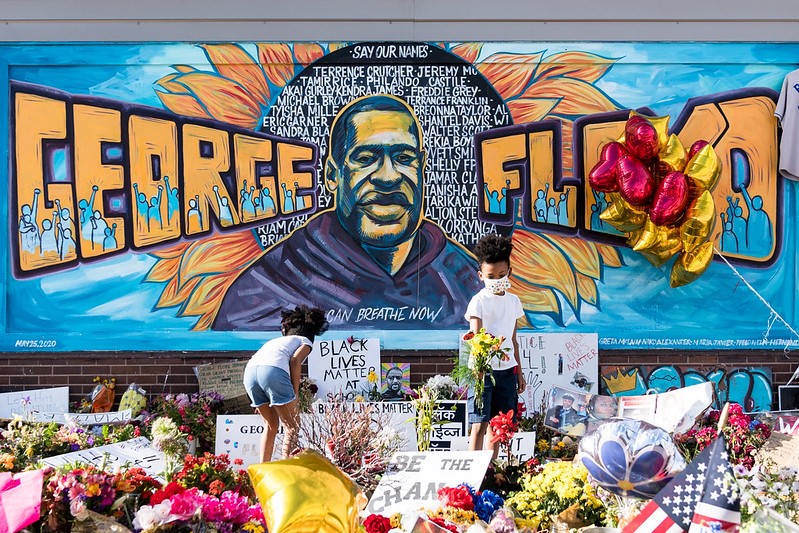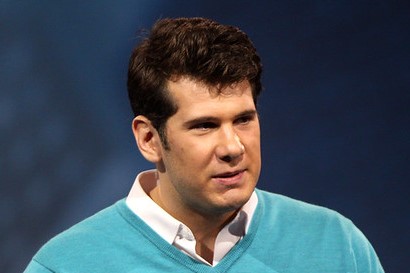Since the death of George Floyd, our esteemed media, as well as their Democratic allies, have suggested that Floyd’s alleged murder is representative of broader American white supremacy, that Floyd’s experience with law enforcement is indicative of how American police pose an existential threat to black Americans. They have offered no evidence for this proposition. Not a shred of evidence has been presented to suggest that former police officer Derek Chauvin’s actions the day of Floyd’s death were motivated by race. Not a shred of evidence has been presented to suggest that black Americans live at threat of extermination from whites or police officers: As of 2013, according to Reuters, a black person’s chances of being murdered by a white person were 5 in 1 million, and according to The Washington Post database of police shootings, as of 2019, a black person’s chances of being shot by the police while unarmed were approximately 3 in 10 million.
But facts don’t matter when you’re pressing forward a narrative.
Now that Chauvin is on trial for Floyd’s murder, the facts will once again become secondary to the narrative. Rep. Karen Bass, D-Calif., said that police reform is dependent on Chauvin’s conviction: “If there was ever a case that you can just not argue, it is this one. This trial has got to come out the right way, and we have to deliver.” Floyd family lawyer Benjamin Crump stated, “Today starts a landmark trial that will be a referendum on how far America has come in its quest for equality and justice for all.”
That’s simply not true.
Bass, Crump and the rest of the establishment media assume that Chauvin’s case is clear-cut — that nobody could possibly vote to acquit. The fact pattern, however, presents serious issues for the prosecution. Chauvin has been charged with second-degree murder, third-degree murder and second-degree manslaughter. All three charges are a challenge.
The prosecution first has to show beyond a reasonable doubt that Floyd’s death was caused by Chauvin’s actions. But the autopsy report shows that Floyd had fentanyl and methamphetamine in his system and had a serious heart problem, and that Chauvin’s neck hold did not in fact cause damage to Floyd’s trachea. That means that while Chauvin’s neck restraint may have contributed to Floyd’s death by ratcheting up his blood pressure, for example, it’s uncertain that it caused Floyd’s death more than, say, the excited delirium from which Floyd may have already been suffering.
Second-degree murder requires that the prosecution prove beyond a reasonable doubt that Chauvin unintentionally killed Floyd while committing a felony — in this case, felony assault. But felony assault requires “intentional” infliction of bodily harm — that Chauvin wanted to hurt Floyd, not just use a suppression tactic already greenlit by the Minneapolis Police Department.
Third-degree murder — depraved-heart murder — doesn’t actually seem to fit the crime here, since it requires proving beyond a reasonable doubt that Chauvin acted in a way “eminently dangerous to others.” Others — plural.
Usually, depraved-heart murder applies to someone who fires a gun into a crowd, not a person who targets an individual.
Second-degree manslaughter requires that the prosecution prove that Chauvin acted with “gross negligence.” But such gross negligence would have to show that Chauvin should have known that his behavior might cause Floyd’s death — an unlikely expectation, since the Minneapolis Police Department actively taught neck holds of the type Chauvin used, and which Chauvin applied only after Floyd resisted arrest and refused to be confined to the back seat of a police car.
The Chauvin case, then, is a legally complex one. But such complexities have been abandoned in favor of narrative. Should Chauvin be acquitted, we are likely to hear that America has proved its racism once again. The only thing that has already been proved, however, is that the “America as white supremacist” lie will remain the media’s dominant narrative, no matter the data.
Ben Shapiro is a graduate of UCLA and Harvard Law School, host of "The Ben Shapiro Show" and editor-in-chief of DailyWire.com. He is the author of the New York Times bestsellers "How to Destroy America in Three Easy Steps," "The Right Side of History" and "Bullies." To find out more about Ben Shapiro and read features by other Creators Syndicate writers and cartoonists, visit the Creators Syndicate website at www.creators.com.






